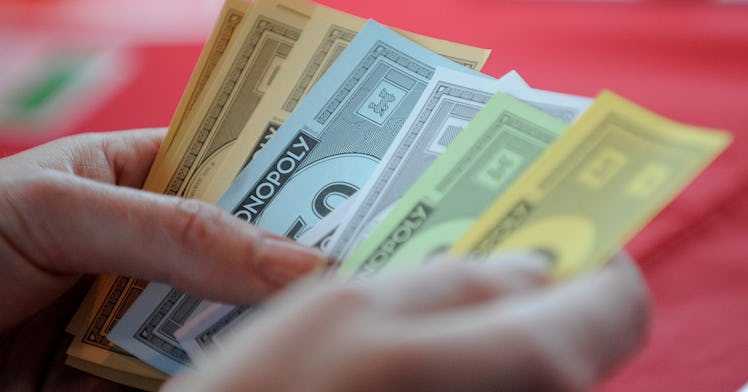The Bizarre Story of the Kid Busted By Swiss Cops For Passing Toy Money
Does a kid need to have his mugshot taken for trying to pay with what it essentially monopoly money?

Should kids get arrested for trying to pass toy money off as real cash? In Switerzland the answer is a big yes.
Diegten, Switzerland, a village of 1,500 people, is currently swirled in chaos and scandal after an 8-year-old boy tried to buy food at a local supermarket and attempted to pay with fake money. The money, for the record, wasn’t counterfeit or laundered — it was toy money that had large Chinese lettering on it (according to the New York Times, referred to as Chinese joss paper or “spirit money”) that had been passed around the village earlier that year. The bills were clearly fake. But, since it’s store policy that employees have to report “counterfeit payments” to law enforcement, an employee at the grocery store called the cops on the 8-year-old boy. That’s where the scandal began.
Weeks after the incident, after police watched security footage of the 8-year-old child using toy money, the police came to the house of the family and said they were investigating an “official offense.” The police visited the home, made an appointment with social services, and upset the 8-year-old to the point where he thought he might be going to jail. The police also confiscated the toy money and took mug shots of the boy and his 10-year-old brother. Those mugshots might be on the police database until 2025, when the boys are 13 and 15, respectively.
A police spokesman admitted that the mugshots might have been a step too far: “In retrospect, it was not absolutely necessary for the children to be photographed,” they said. The supermarket chain also apologized — largely due to the fact that it was a little kid using obviously toy money and not acting maliciously.
The kid is fine and won’t face any legal penalties, and the police maintain that although the photos weren’t necessary, the police acted properly in doing the house visit, interviewing the kids, and calling social services. All over Monopoly money.